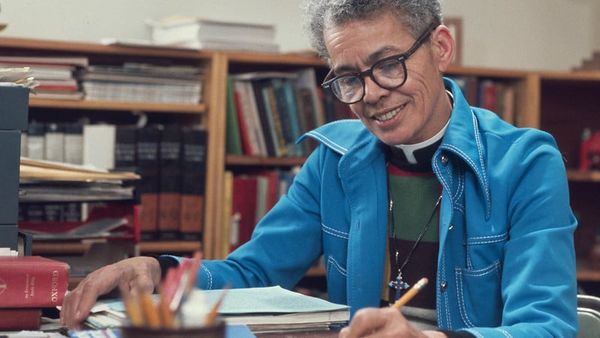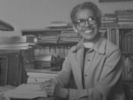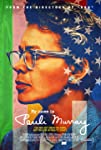Eye For Film >> Movies >> My Name Is Pauli Murray (2021) Film Review
My Name Is Pauli Murray
Reviewed by: Amber Wilkinson

Following on from their profile of Ruth Bader Ginsburg, Julie Cohen and Betsy West step further back in time to consider African-American writer, activist, lawyer and, later, Episcopal priest Pauli Murray, who was a formative influence on RBG. (Ginsburg cited Murray on discrimination case Reed v Reed as a co-author as acknowledgement to the debt owed for Murray's earlier equality work).
It's not just Ginsburg who was hugely influenced by Murray, as Cohen and West's film clearly articulates, the latter was an anti-discrimination pioneer, her direct action on buses and in terms of desegregation predating landmark moments that caught more media attention. At this point, I should note that I am using the female pronoun with caution throughout this review. Murray was non-binary in a world that was much less willing to accept that than today's and is referred to variously by the pronouns "she" - by her family - and "they", by some of the other contributors to this documentary.

Language, it turns out, was even a thorny subject for Murray, who faced opposition from younger African-American activists for persisting in the use of the term "Negro" when they preferred "black" - something that gives wider pause for thought regarding the way that language can become an unfortunate sticking point between those who otherwise share common cause. More often, than not, however, the lawyer was so far ahead of the curve, others thought the road was dead straight ahead - such as the time when Murray bet a professor $10 dollars that Plessy v Ferguson Jim Crow laws would be overturned within a quarter of a century... and collected the debt within 10 years.
Cohen and West draw on the rich archive of Murray's own work - including books, audio recordings and files - further illustrating it with archive footage and photographs of the periods the film refers to in order to paint a picture of quiet but firm activism. There's the refusal to move bus seats 15 years before Rosa Parks took the headlines or the successful sit-in at diners in Washington DC that led to desegregation there two decades before the more famous Woolworth's action but there's also a wealth of writing and legal argument that went on to be hugely influential. Given that she was also a close friend of Eleanor Roosevelt, it seems all the more remarkable that her name isn't better known than it is, and another reminder of the way history's spotlight has always shone more strongly on men than women and even less so if they weren't white.
Beyond the activism, Cohen and West leave room for Murray's personal life, something the lawyer also preserved documents about in a folder marked "sexuality", considering the impact of her gender non-conformity on her mental health along with the joy that her relationship with Irene Barlow brought her. "I've lived to see my lost causes found," Murray once said - it's only a shame she hasn't lived to see her own life being rediscovered in such an engaging way as you sense she would have got a kick out of it.
Reviewed on: 06 Feb 2021
















